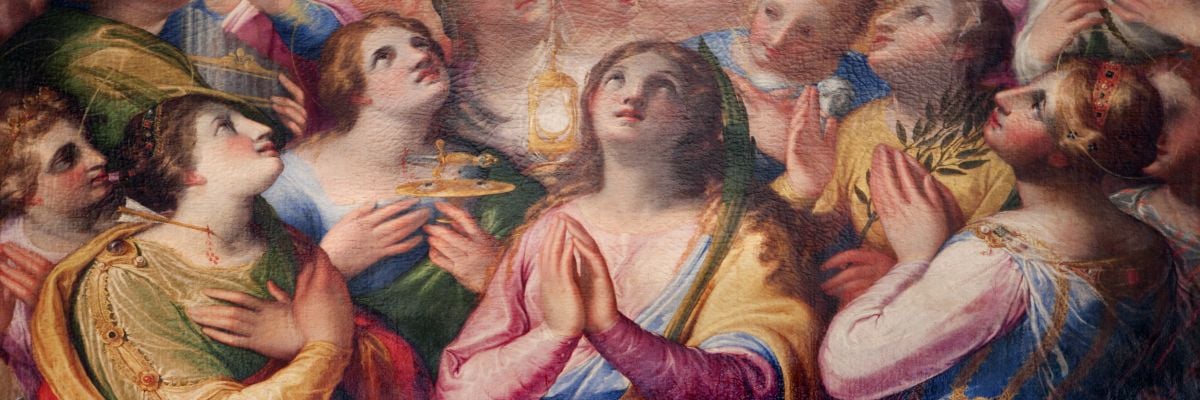
Question:
Answer:
This person’s premise is faulty. There is no doubt that the first Christians were Jews, but Jews who weren’t Christian refrained from participating in distinctively Christian worship, whereas Christians did participate in Jewish worship that didn’t contradict Christian doctrine. This period lasted until the destruction of the temple in A.D. 70, at which point Old Covenant sacrifices could no longer be offered.
If Jewish Christians and Jews who didn’t accept Christ had really worshipped together, then Saul—a Jew who didn’t accept Christ—wouldn’t have persecuted the Church (e.g., taking part the stoning of Stephen in Acts 7:54-8:8:3). And Jewish authorities wouldn’t have persecuted Saul, who became St. Paul, after his conversion to Christianity.
There is no doubt that non-Christian Jews didn’t accept the Real Presence in the Eucharist (see John 6:51-66) and the related breaking of the bread or sacrifice of the Mass (see Luke 24:28-35, Acts 2:42). That is why we read in Hebrews “we have an altar from which those who serve the tent have no right to eat” (Heb. 13:10, emphasis added). An altar conveys that New Covenant worship did indeed involve a sacrifice. “Those who serve the tent” were the Levitical priests, “the tent” referring to the temple’s tabernacle or tent at which Levitical priests offered Old Covenant sacrifices.
That they had no right to eat indicates that they hadn’t accepted Christ and related New Covenant worship. So once again we see that Christian Jews and non-Christian Jews didn’t worship together in distinctively Christian worship.
Regarding the alleged Council of Jamnia: it didn’t take place. See this article in Catholic Answers Magazine for more on that topic. There was a non-Christian Jewish school there, but there is no evidence that a council addressing the canon of Scripture took place. And even if it had, it would have had no authority regarding the canon because it wouldn’t have had Church sanction.



